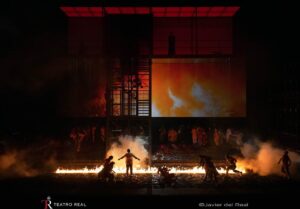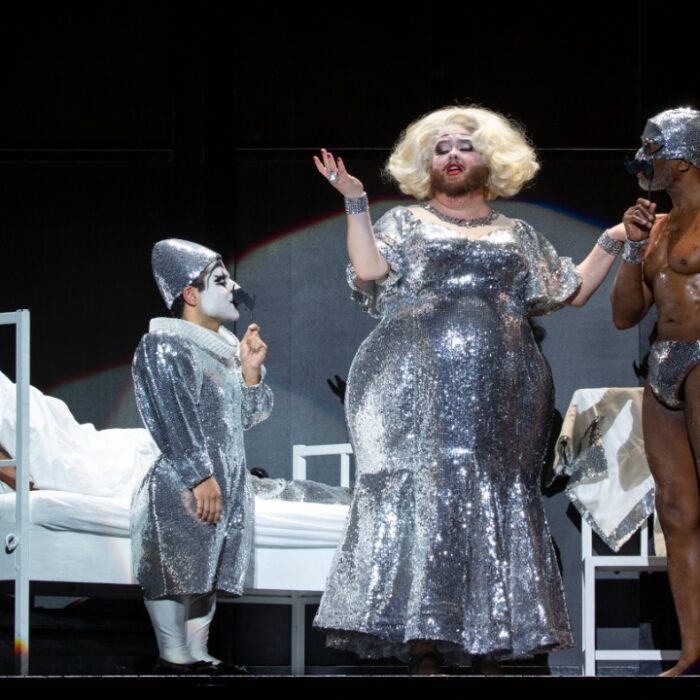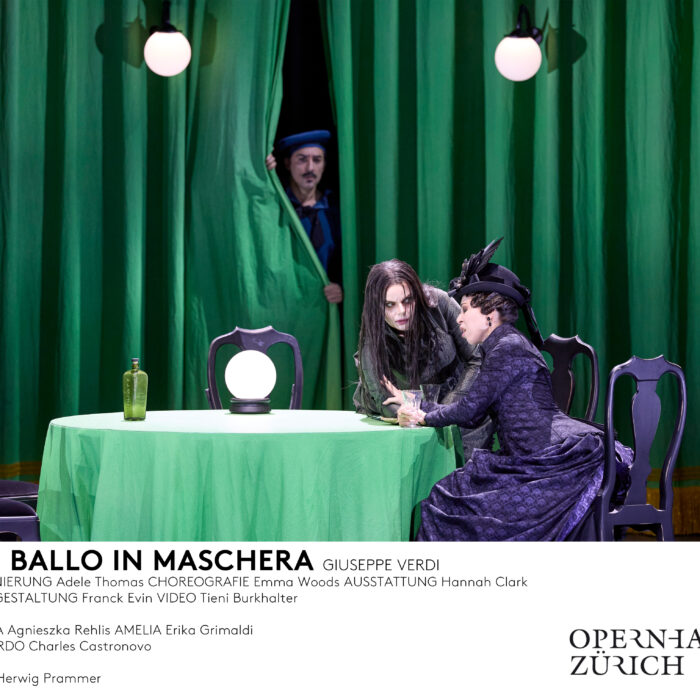
Teatro Real 2023-24 Review: Medea (Cast B)
Saioa Hernandez Steals the Show with an Exceptional Medea
By Mauricio VillaIn the second cast of the Teatro Real de Madrid’s “Medea,” Saioa Hernandez proved a revelation.
Her dramatic instrument with a bright dark timbre, her expansive vibrato, her thunderous high register, her sonorous low register in chest voice, and her fluid vocal line make her ideal for this role. Medea’s writing is mostly central, we could even say that it has a mezzo-soprano tessitura, as it mostly lies inside and under the stave. But in the final part of the arias and through the most dramatic moments of the recitatives there are difficult jumps (an octave or more) to A naturals, B flats and B naturals. Hernandez has Verdi’s Abigaille or Lady Macbeth (which are famous for their devilish writing requiring a dramatic big voice which can sing coloratura an extreme high note at the same time) in her repertoire and therefore Medea would be an optimal choice.
From her very first entrance line: “Voici donc le palais où l’illustre Jason, Étale ses lauriers et l’or de la toisón” you get an idea of her impressive sound, which expands throughout the auditorium and rings in your ears, lending the character with an astonishing vocal presence and charisma.
Hernandez’s Medea was a strong dolent woman full or rage, regret, and vengeance. She can sound sweet when she’s begging Jason for his love or for her children’s sake, by coloring her voice, singing fluid soaring vocal lines and using mezza voce. Her entrance aria: “Vous voyez de vos fils la mère infortunée” was very moving, sang with deep emotion in contrast to her strong determined first recitative. And this was one of the reasons of her success: to be able to control her big dramatic voice and sound fragile and weak. Her interpretation of the murderous demigoddess was hair raising. Medea is a difficult role as she doesn’t have a clear long dramatic arch where there is a development of the different mental states (like Strauss’ Elektra, for example). Medea is rather angry or sad, and it’s very difficult to sustain the whole performance based on these two strong emotions only. But Hernandez managed to keep a constant tension in her interpretation.
Her first act duet with Jason was menacing and hopeless at the same time. Her big scene: “Ils mourront. Mais quel coup, quel art assez cruel” was a brilliant example of her ability to portray the doubt, the fury, the sorrowful love for her children, her feelings of revenge not only dramatically but vocally too. Her third act aria: “Du trouble affreux qui me dévore” was lirycal and deeply moving, but her final scene, when she tells Jason she has killed their own children, was terrifying. Hernandez gave an impressive performance with her vocal power, her voice control, and her stage presence.
The Right Voices for the Roles?
Francesco Demuro played Jason. He has a lirico-leggero voice carried over the orchestra easily as it has a ringing quality that compensates his lack of volume. The problem is that he has a caprine fast vibrato which makes his voice sounds unstable and his timbre ungrateful. He can easily sing around the passagio, as this role requires, and therefor could sing fluid legato lines written around G and A naturals like in his first aria: “Eloigné pour jamais d’une épouse cruelle” but the qualities of his voice could not portrayed a heroic powerful character. It might be considered that this could have been a bad choice in casting as a lyrical tenor voice would suit the part much better.
Marina Monzó sang the short role of Jason’s fiancé Dirce. She possesses a lirico-leggera dark instrument with a warm timbre and round quality. Although her French diction was a bit blurred in detriment of this round emission. She sang her single long aria with sweetness and effortless jumps to high Cs, interpolating an extra high D which sounded a bit open losing the roundness that her voice posses up to high C. Her final coloratura section was clean and secure.
Neris, Medea’s confidant, was portrayed by the mezzo soprano Silvia Tro Santafè. Her part is delegated to spare lines with the exception of her second act aria: “Ah! nos peines seront communes” whose central tessitura adapts perfectly to Santafe’s instrument, as she lacks projection, and her timbre is a bit dry. But she offered a moving interpretation of her lamenting aria with beautiful legato singing and a secure low register.
The bass-baritone Michael Mofidian was a deficient Creonte. He looked too young for this role. And it wasn’t just about his appearance and age (He is very young) which could have been altered with make-up (although it wasn’t), but about his vocal presence. His voice sounds too lyrical, and he lacks volume and projection and therefore his voice sounded distant and small. He failed in portraying and old king, father of Dirce. In fact, he looked and sounded more like Dirce’s brother or Jason’s child. The orchestration is not big or dense and therefore he could be heard (every singer could be heard clearly; thanks to the work of Ivor Bolton who found a correct balance between the orchestra and the voices), but, as it happened in his case, the voice sounded far, small and lacked vocal weight.
Saioa Hernandez eclipses completely the rest of the cast, and therefore was the absolute protagonist of the evening, by her vocal power and strong characterization of this difficult long role.


